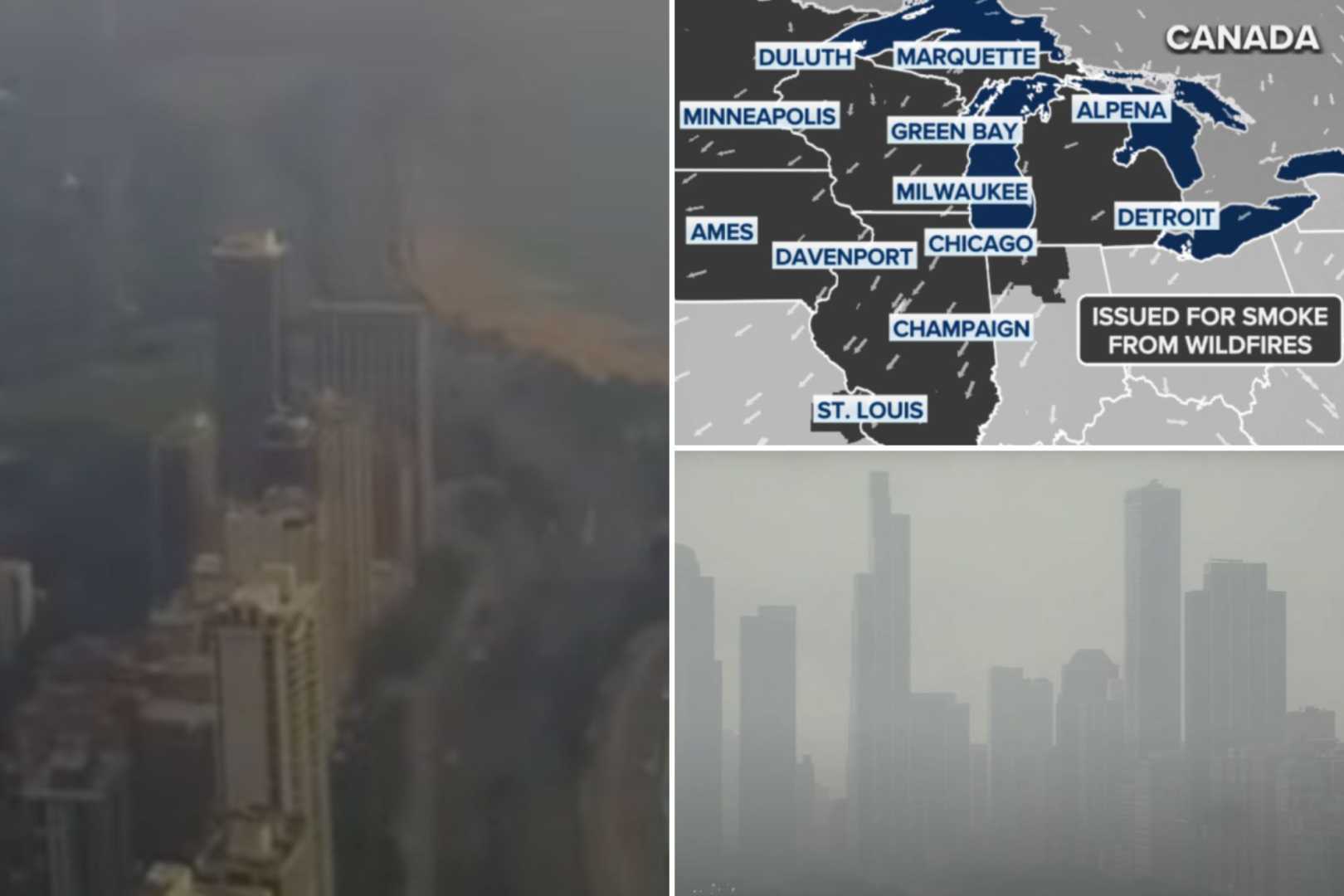News
Unhealthy Air Quality Impacts Minneapolis and Chicago Amid Heavy Storms

Minneapolis, MN – Air quality has reached ‘unhealthy’ levels in both Minneapolis and Chicago, prompting health alerts for residents.
On August 2, 2025, heavy rainstorms hit the Carolinas, bringing 1 to 4 inches of rain and triggering flash flood warnings. In Nebo, North Carolina, rescuers saved three people from rising floodwaters while 25 others were evacuated from a campground.
In Craven, South Carolina, strong winds and heavy rain caused several trees to fall onto homes, damaging properties. Fortunately, there are no reported injuries despite some homes being declared total losses.
As the storms move east, the flash flood risk has shifted to parts of the Southeast, including Alabama, the Carolinas, and northern Florida. Forecasts predict heavy thunderstorms and rainfall rates reaching 2 inches per hour.
The National Weather Service also issued flash flood warnings for the southern Appalachians, particularly for areas like Knoxville, Tennessee, and Dalton, Georgia. Additional storms may bring damaging winds and lightning.
In the meanwhile, wildfire smoke from over 700 wildfires burning in Canada blankets large parts of the Midwest, including air quality alerts for Minnesota, Wisconsin, Michigan, Iowa, and Illinois. Cities like Chicago, Fort Wayne, Kansas City, and Omaha are also affected.
Minneapolis and Chicago are experiencing some of the worst air quality conditions globally, prompting concern for the health of residents. The Canadian Interagency Forest Fire Centre has reported that 216 of the wildfires are out of control.
Later in the weekend, the worst of the smoke is expected to shift over Michigan, Minnesota, and Wisconsin, although hazy skies will persist across the Midwest and parts of the Northeast.
In other areas, wildfires in Utah and near the Grand Canyon are also contributing to poor air quality conditions. The Dragon Bravo Fire has burned more than 112,000 acres near the Grand Canyon, currently only 9% contained.
As extreme heat persists in parts of the West, including Phoenix and Tucson, high temperatures are anticipated to reach 110 to 115 degrees this weekend. Fire weather alerts are also in place for Utah and Colorado due to low humidity and high winds.
The National Weather Service continues to monitor all regions affected by severe weather and air quality issues.












